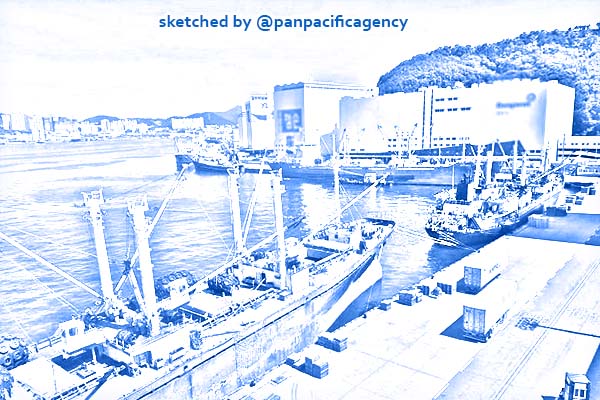Cross-industry initiative in Japan seeks to transform CO2 from steel mills into new shipping fuel

The Russian ship was allowed to dock in Busan after submitting quarantine documents electronically. PHOTO: EPA-EFE/YONHAP. Sketched by the Pan Pacific Agency.
TOKYO, Jul 16, 2020, Splash247. Nine Japanese companies – including shipyards, shipping line Mitsui OSK Lines (MOL), Class NK and steel mills – are looking into capturing CO2 emissions from steel production to ultimately power ships, Splash247 reported.
The cross-industry initiative using so-called methanation technology is the latest innovative research being carried out as Japan pursues zero-emission ship fuels.
Participating members are ClassNK, EX Research Institute, Hitachi Zosen, Japan Marine United, JFE Steel Corporation, JGC Corporation, MOL, Nippon Steel Corporation and Sanoyas Shipbuilding.
Japan is the world’s third largest steel producer as well as being home to the world’s third largest merchant fleet – both industries looking hard at cutting their carbon footprints at the moment.
The group will look at separating, capturing and liquefying CO2 emitted from steelworks, then how to transport the liquefied CO2 by ship to a hydrogen supply site where it would be turned into liquefied authentic methane for use on ships.
“Methanation is a technology for synthesizing methane, the main component in natural gas, by causing a chemical reaction between hydrogen and CO2 in a reactor vessel filled with a catalyst. It uses emitted CO2 separated and captured from industrial facilities. As the CO2 generated when combusting synthesized methane is considered to be offset by the separated and captured CO2, it is expected that CO2 emissions can be significantly reduced by using hydrogen generated by electrolyzing water with electricity derived from renewable energy,” MOL explained in a release today.